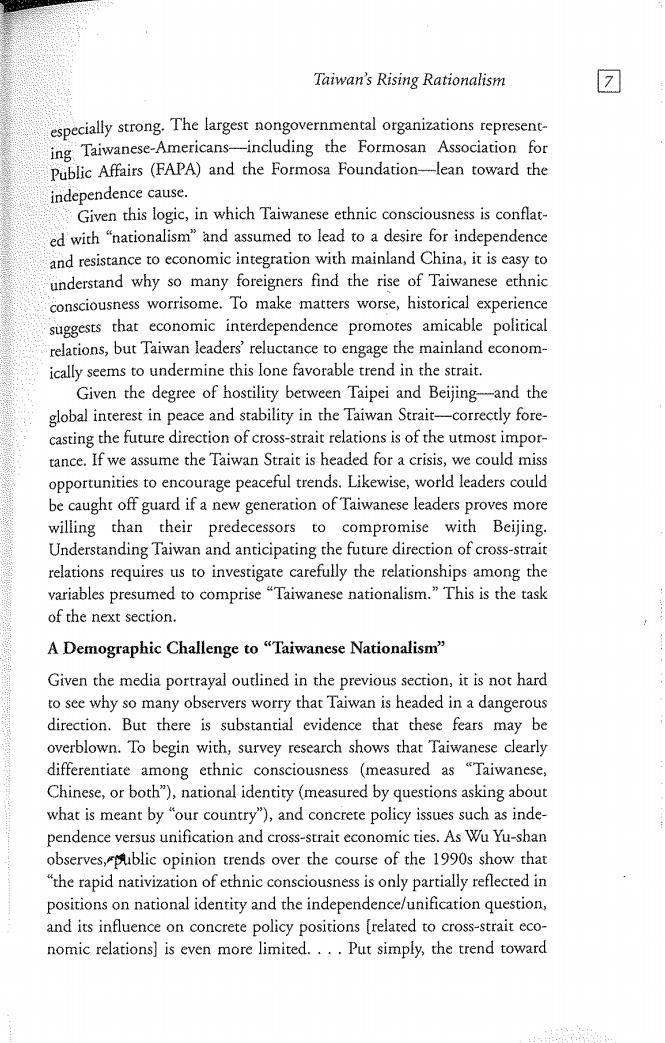正在加载图片...

Taiwan's Rising Rationalism 包 especially strong The largest nongovernmental organizations represent ing Taiwanese-Americans-including the Formosan Association for Public Affairs(FAPA)and the Formosa Foundation-lean toward the independence cause. Given this logic,in which Taiwanese ethnic consciousness is conflat- ed with"nationalism"and assumed to lead to a desire for independence and resistance to economic integration with mainland China,it is easy to understand why so many foreigners find the rise of Taiwanese ethnic consciousness worrisome.To make matters worse,historical experience suggests that economic interdependence promotes amicable political relations,but Taiwan leaders'reluctance to engage the mainland econom- ically seems to undermine this lone favorable trend in the strait. Given the degree of hostility between Taipei and Beijing-and the global interest in peace and stability in the Taiwan Strait-correctly fore- casting the future direction of cross-strait relations is of the utmost impor- tance.If we assume the Taiwan Strait is headed for a crisis,we could miss opportunities to encourage peaceful trends.Likewise,world leaders could be caught off guard if a new generation of Taiwanese leaders proves more willing than their predecessors to compromise with Beijing. Understanding Taiwan and anticipating the future direction of cross-strait relations requires us to investigate carefully the relationships among the variables presumed to comprise "Taiwanese nationalism."This is the task of the next section. A Demographic Challenge to"Taiwanese Nationalism" Given the media portrayal outlined in the previous section,it is not hard to see why so many observers worry that Taiwan is headed in a dangerous direction.But there is substantial evidence that these fears may be overblown.To begin with,survey research shows that Taiwanese clearly differentiate among ethnic consciousness (measured as "Taiwanese, Chinese,or both"),national identity (measured by questions asking about what is meant by"our country"),and concrete policy issues such as inde- pendence versus unification and cross-strait economic ties.As Wu Yu-shan observes,public opinion trends over the course of the 1990s show that "the rapid nativization of ethnic consciousness is only partially reflected in positions on national identity and the independence/unification question, and its influence on concrete policy positions [related to cross-strait eco- nomic relations]is even more limited....Put simply,the trend toward